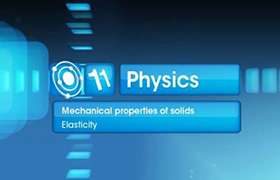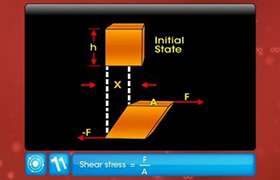CBSE Class 11-science Answered
Therefore the amount of work done (W ) in increasing the length of the wire from l to L + l, that is from l = 0 to l = l is

Careful observations with the Youngs modulus experiment show that there is also a slight reduction in the cross-section (or in the diameter) of the wire. The strain perpendicular to the applied force is called lateral strain. Simon Poisson pointed out that within the elastic limit; lateral strain is directly proportional to the longitudinal strain. The ratio of the lateral strain to the longitudinal strain in a stretched wire is called Poissons ratio. If the original diameter of the wire is d and the contraction of the diameter under stress is ?d, the lateral strain is ?d/d. If the original length of the wire is L and the elongation under stress is ?L, the longitudinal strain is ?L/L. Poissons ratio is then (?d/d)/(?L/L) or (?d/?L) (L/d). Poissons ratio is a ratio of two strains; it is a pure number and has no dimensions or units. Its value depends only on the nature of material. For steels the value is between 0.28 and 0.30, and for aluminum alloys it is about 0.33.






